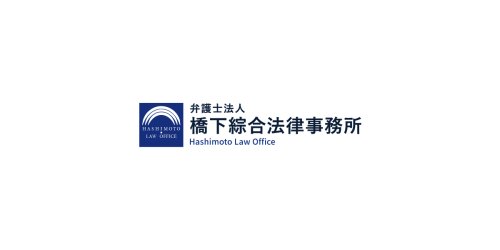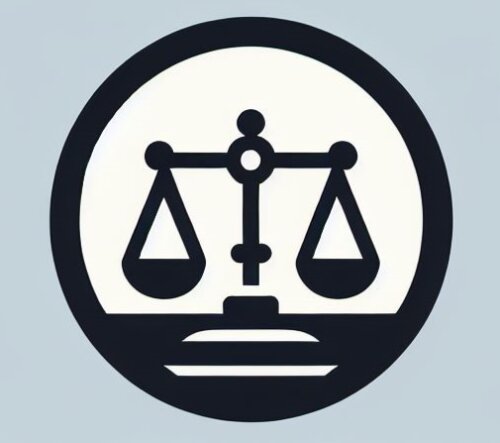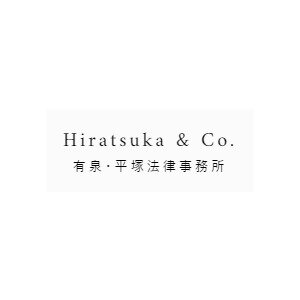Best Commercial Litigation Lawyers in Japan
Share your needs with us, get contacted by law firms.
Free. Takes 2 min.
Or refine your search by selecting a city:
List of the best lawyers in Japan
About Commercial Litigation Law in Japan
Commercial litigation in Japan refers to the process of resolving disputes arising from business and commercial transactions through Japan's legal system. These disputes often involve matters such as contracts, partnerships, debt collection, intellectual property, company law, and shareholder rights. The litigation process is governed by a combination of statutes, including the Civil Code, the Commercial Code, and the Code of Civil Procedure. Japanese courts are generally viewed as efficient and fair, with a strong emphasis on written evidence and procedural compliance. Commercial litigation typically takes place in the district courts, with appeals going to higher courts as necessary.
Why You May Need a Lawyer
Engaging a lawyer for commercial litigation in Japan is essential in several situations. If you are involved in a business dispute, such as breach of contract, recovery of debts, conflicts between shareholders, or infringement of intellectual property rights, a lawyer can help protect your interests. Legal representation is also crucial when interpreting complex commercial agreements, communicating with counterparties, or navigating the formal requirements of Japanese courts. Additionally, if your dispute has the potential to escalate or involves a significant amount of money, a lawyer’s expertise ensures compliance with procedures and enhances the likelihood of a favorable outcome. For foreign companies or individuals, a Japanese commercial litigation lawyer is invaluable for overcoming language barriers and understanding local business customs.
Local Laws Overview
Japanese commercial litigation is governed by several key laws and principles:
- Civil Code: This outlines general principles of obligations and contracts, which are central to most commercial disputes.
- Commercial Code: This law provides specific rules for commercial transactions, including corporate structures, negotiable instruments, and other business dealings.
- Code of Civil Procedure: This prescribes the necessary steps for filing lawsuits, providing evidence, conducting trials, and appealing judgments.
- Enforcement Law: After a judgment, this law dictates how successful parties can enforce court orders and collect payment or remedies.
The litigation process is characterized by a strong focus on documentary evidence and written arguments. Court hearings tend to be short, involving multiple sessions over an extended period. Alternative dispute resolution methods, such as mediation or arbitration, are also encouraged and sometimes required before litigation proceeds.
Frequently Asked Questions
What types of disputes are classified as commercial litigation in Japan?
Commercial litigation covers any dispute arising from business activities, including contract breaches, company management disagreements, commercial fraud, trademark infringement, and issues involving mergers and acquisitions.
How long does a commercial lawsuit usually take in Japan?
The duration varies, but most cases in district courts take between one and three years from filing to judgment, depending on the complexity and the willingness of parties to settle.
Do I need to attend court in person for commercial litigation?
Generally, parties are not required to attend all hearings, as lawyers often represent them. However, personal attendance may be necessary for settlement negotiations or when the court needs direct testimony.
Can foreign companies participate in commercial litigation in Japan?
Yes, foreign companies can sue or be sued in Japanese courts. Hiring a Japanese lawyer is recommended to navigate local laws and court procedures effectively.
Is it possible to settle a commercial dispute without going to court?
Yes, mediation and arbitration are popular alternatives to court litigation. Courts may also encourage settlement during proceedings.
How are judgments enforced in Japan?
Once a final judgment is issued, the prevailing party can apply to the court for enforcement measures, such as asset seizures or compulsory payments.
What evidence is important in Japanese commercial litigation?
Written contracts, correspondence, invoices, and other documentary records are crucial since Japanese courts prioritize written evidence over oral testimony.
Can I appeal a commercial court decision?
Yes, parties can appeal to a higher court within a prescribed period, usually two weeks from the date of judgment.
What legal costs are involved in commercial litigation?
Costs include court filing fees, lawyer’s fees, and sometimes expert witness fees. Court fees are generally based on the sought amount in dispute, and each side typically bears their own legal costs unless the court orders otherwise.
Are court proceedings conducted in Japanese?
Yes, all proceedings and filings must be in Japanese. For non-Japanese speakers, hiring a bilingual lawyer is essential.
Additional Resources
For more guidance, consider reaching out to:
- Japan Federation of Bar Associations (JFBA): Provides lawyer referrals and valuable information on commercial litigation topics.
- Tokyo District Court: Handles many high-profile commercial cases and provides information on court procedures.
- Ministry of Justice: Offers insight into legal system structure and legal aid for those who qualify.
- Japan Commercial Arbitration Association (JCAA): Facilitates alternative dispute resolution in commercial matters.
Next Steps
If you are facing a commercial dispute or considering litigation in Japan, begin by documenting all relevant events, contracts, and correspondence. Seek advice from a legal professional with expertise in Japanese commercial litigation as early as possible to understand your rights, potential risks, and the best course of action. Consult the Japan Federation of Bar Associations for a lawyer referral, or contact your local embassy in Japan if you are a foreign party needing additional assistance. Having a qualified lawyer is the best first step toward protecting your business interests and achieving an effective resolution.
Lawzana helps you find the best lawyers and law firms in Japan through a curated and pre-screened list of qualified legal professionals. Our platform offers rankings and detailed profiles of attorneys and law firms, allowing you to compare based on practice areas, including Commercial Litigation, experience, and client feedback.
Each profile includes a description of the firm's areas of practice, client reviews, team members and partners, year of establishment, spoken languages, office locations, contact information, social media presence, and any published articles or resources. Most firms on our platform speak English and are experienced in both local and international legal matters.
Get a quote from top-rated law firms in Japan — quickly, securely, and without unnecessary hassle.
Disclaimer:
The information provided on this page is for general informational purposes only and does not constitute legal advice. While we strive to ensure the accuracy and relevance of the content, legal information may change over time, and interpretations of the law can vary. You should always consult with a qualified legal professional for advice specific to your situation.
We disclaim all liability for actions taken or not taken based on the content of this page. If you believe any information is incorrect or outdated, please contact us, and we will review and update it where appropriate.
Browse commercial litigation law firms by city in Japan
Refine your search by selecting a city.














